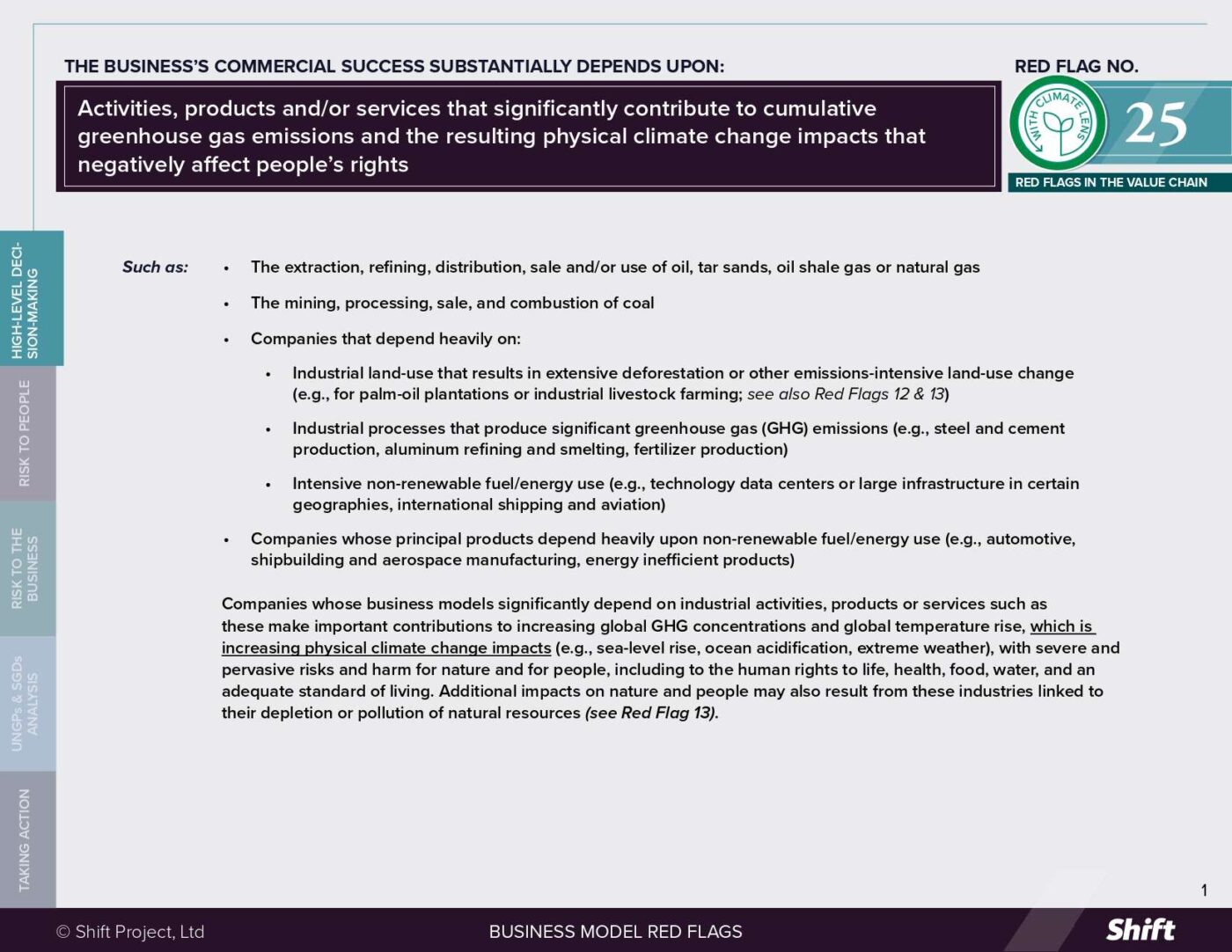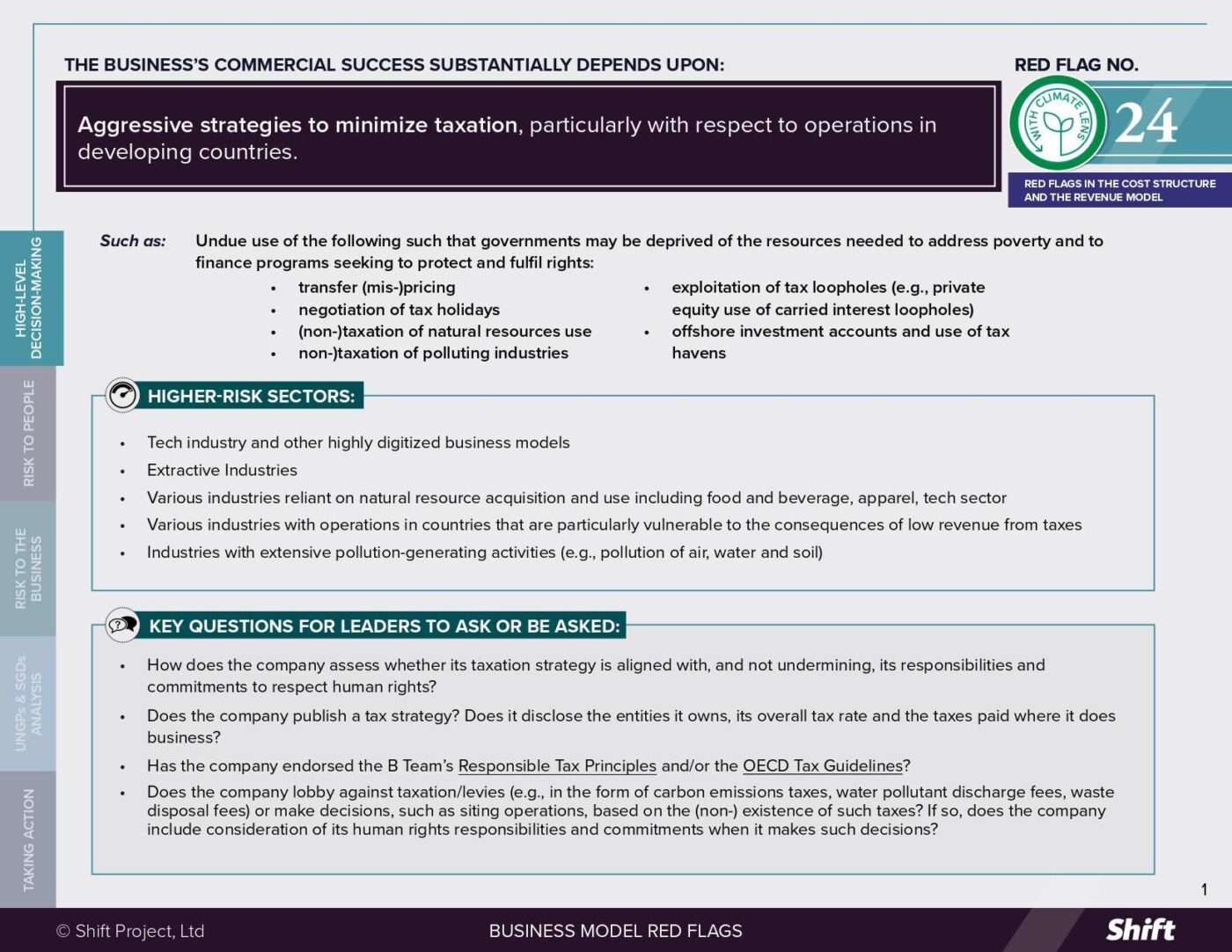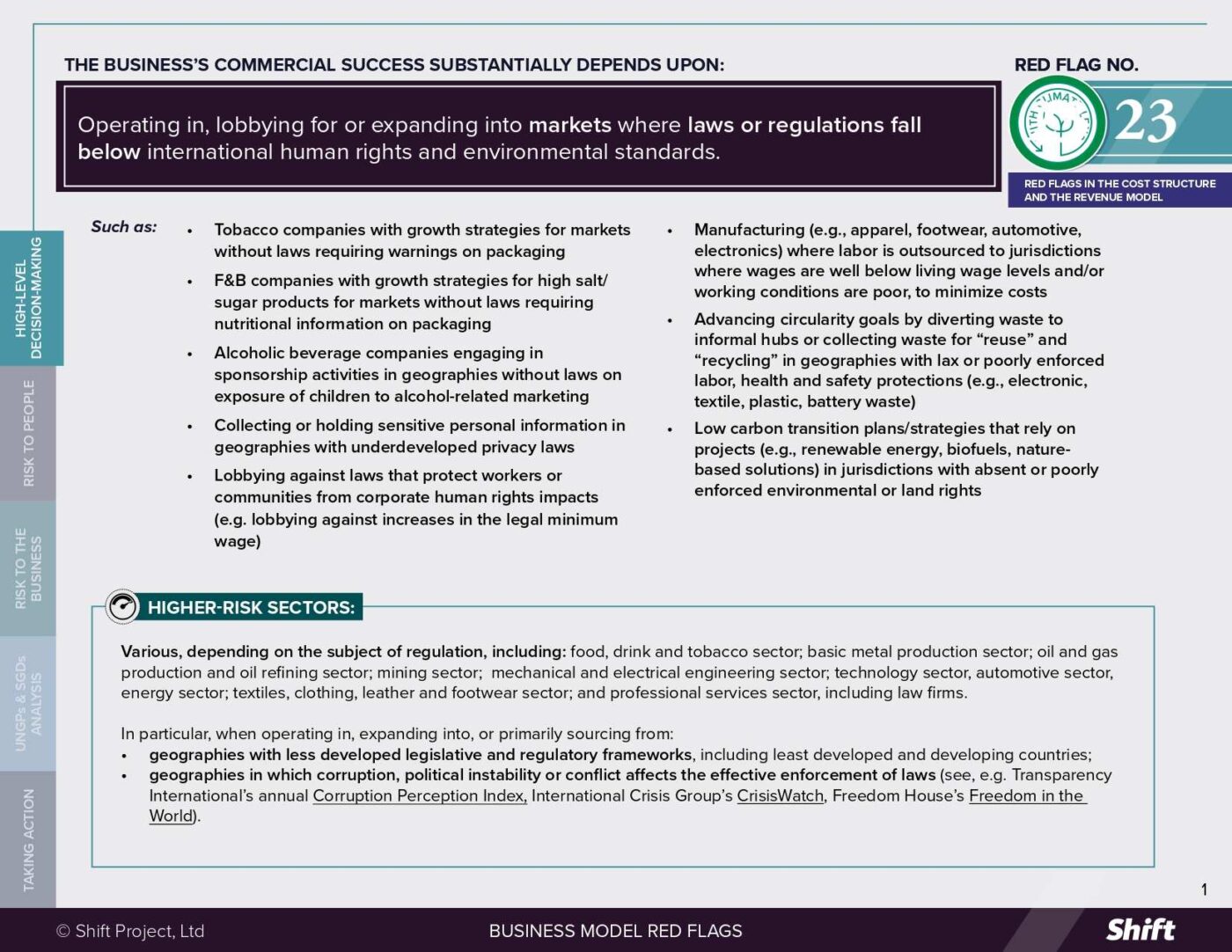The following is the full text of the keynote address delivered by Shift Chair and author of the Guiding Principles John Ruggie on November 14, 2016 to the UN Forum on Business and Human Rights in Geneva, Switzerland.
Also see: Our short framework for action that any company should and can follow to contribute to sustainable development
I suspect that many of you here today were surprised, as I was, by the results of the US presidential election. I also suspect that many of you were surprised, as I was, by the results of the Brexit referendum. Perhaps we should not have been.
As far back as January 1999 former UN Secretary-General Kofi Annan warned, in a World Economic Forum speech, that unless globalization has strong social pillars it will be fragile and vulnerable —“vulnerable to backlash from all the ‘isms’ of our post-cold war world: protectionism; populism; nationalism; ethnic chauvinism; fanaticism; and terrorism.” He specifically appealed to the business community to step up and play its role in achieving a socially sustainable globalization.
Clearly, we must redouble our efforts. Equally important, we have to maximize the effectiveness of our efforts to make globalization work for all because, as Annan has also said, if it doesn’t, “in the end it will work for none.”
We neither need, nor do we want, additional evidence of his prophetic insight.
In keeping with the urgency of this challenge, my focus today is on the relationship between the Sustainable Development Goals and the UN Guiding Principles on Business and Human Rights. And my message is that for business to fully realize its contribution to sustainable development, it must put efforts to advance respect for human rights at the heart of the people part of sustainable development.
My message is that for business to fully realize its contribution to sustainable development, it must put efforts to advance respect for human rights at the heart of the people part of sustainable development.
The Guiding Principles set out the global standard of what businesses must do to embed respect for human rights throughout their operations and business relationships. The SDGs, in turn, are a vision statement and action plan for achieving social and environmental sustainability on our planet. Logically and in practice the two should be inextricably linked, with the Guiding Principles setting the tone for the social components of the SDGs to which business is expected to contribute.
Given the sheer ambition of the SDGs and the pressing need for all sectors of society to contribute to their realization, I urge businesses everywhere to help meet our common existential challenge.
At the same time, I want to flag an emerging risk I see in some of the SDG narratives within the business community that may weaken the link between the Guiding Principles and the SDGs, or possibly sever it altogether. This can occur when businesses are encouraged to believe that advancing respect for human rights involves merely doing no harm, and that to do positive good they need to go beyond respecting rights. This view misses one of the most important features of respecting human rights. When companies drive respect for human rights across their own operations and their global value chains, they generate an unprecedented large-scale positive impact on the lives of people who may be most in need of the benefits of sustainable development.
Is there a risk of weakening the link between the Guiding Principles and SDGs? And if there is, how should it be dealt with? Let me begin by summarizing some of the emerging narratives that are the source of my concern.
First, the General Assembly resolution adopting the SDGs in its operative part makes only a passing reference to relevant standards and agreements that address corporate accountability for human rights harm, including the Guiding Principles. This may be misread by some to imply that these standards matter less than getting business to engage in the SDGs on any terms. Of course that was not the intent, as the Resolution’s section on implementation makes abundantly clear. But it is an impression that we are starting to see gaining ground.
Second, quite a number of business strategies for contributing to the SDGs draw on the Creating Shared Value paradigm, made famous by my Harvard colleague Professor Michael Porter. In a Harvard Business Review article Porter defines creating shared value as “the policies and operational practices that enhance the competitiveness of a company while simultaneously advancing the economic and social conditions in the communities in which it operates.” It stands to reason that any such win-win situation should be prized and seized upon, and the more of them that can be created, the better.
However, Porter clearly stipulates that “creating shared value presumes compliance with the law and ethical standards, as well as mitigating any harm caused by the business.” But isn’t the business and human rights challenge precisely about the fact that this presumption fails to hold in far too many circumstances? Why else would we have needed the Guiding Principles? Why else is there a move in several countries, including France and Switzerland, to make human rights due diligence mandatory? Why else are some governments and many advocacy groups pushing for the adoption of an international business and human rights treaty? In short, business strategies drawing on this paradigm need to take into account that its underlying presumption is problematic in practice.
Getting respect for human rights right is itself radically transformative and disruptive.
My third concern stems from findings in early consultancy reports. Most companies surveyed indicate that they are not planning to assess their possible contributions against all 17 SDGs but, in the words of one report, that they will “cherry-pick.” On what basis will they pick? The answer is: materiality, or put simply, business risks and opportunities. But business and human rights in the first instance is not about what is material to the firm: it is about the salient risks, or most severe potential harms, that business activities and relationships pose to people. Salient risks may turn out to be material to the business if they are left unattended. But a traditional materiality test will often miss them. Nor can business initiatives to promote social goods substitute for failing to address salient risks. This is a fundamental difference between human rights and climate change: in human rights there is no equivalent to buying carbon offsets.
A fourth and related reason for my concern stems from the way in which strategies for contributing to the SDGs are being framed by some who are advising business. The claim is made that these strategies are so novel that they will generate “transformative” and even “disruptive” business models. Indeed, one report suggests that the SDGs invite a shift “from responsibility to opportunity.” It posits what it calls a “maturity continuum,” with responsibility at one end, and transformative opportunity at the other. Now, who would not prefer to be considered “mature” and leave behind the irksome task of being responsible for one’s own negative externalities in the quest for new business opportunities? Of course, no such maturity continuum exists. In fact, getting respect for human rights right is itself radically transformative and disruptive.
My fifth and perhaps most critical concern is the assumption embedded in this whole discourse that respecting human rights is merely about stopping a negative practice, lacking the more inspirational virtue of making a positive contribution. This rests on a false dichotomy, between compliance-based views of ‘respect’ on the one hand, and voluntary efforts to ‘promote’ human rights on the other. Ironically, this is the same false dichotomy on which the old CSR model was based—a dichotomy the Guiding Principles left behind long ago.
Consider this example. Companies have learned that non-discrimination in their personnel practices involves much more than adopting a few rules to regulate unacceptable behavior. It involves instituting a positive culture of inclusion and diversity, of empowering people whose potential previously might have been discounted, of providing equal pay for equal work and equal opportunity for advancement. It requires extensive training and other support systems that did not exist before. These are not negative acts. They are powerfully affirmative, transformative and even disruptive of traditional practices.
One of the Guiding Principles’ most transformative contributions is the requirement that companies’ responsibility to respect human rights is not limited to their own operations, but extends to human rights impacts connected to their products and services throughout their network of suppliers and other business relationships. The GPs recognize that companies do not control every dimension of these relationships, so they introduce the concept of leverage. Where people’s human rights are adversely affected by activities in a company’s value chain, the company’s responsibility is to use its leverage to try to improve those people’s situation. Where the leverage is insufficient the company is expected to try and increase it, perhaps in collaboration with other companies or different stakeholders. I venture to predict that this is where business can make its single biggest contribution to the people part of the sustainable development agenda.
Why? Because the labor of roughly one in six workers in the world today is part of multinational value chains. This doesn’t count those in “informal” work, which may include in-home subcontractors. It does not count non-standard work, such as temporary work or forced labor. Also reflect on the fact that many of the workers in multinational value chains have families and live in communities, which suffer the ill effects or reap the benefits from how those workers are treated. The numbers add up very quickly to reach perhaps two billion people or more — out of the total world population of 7.4 billion. Now that is scale.
A concerted effort by business to respect the human rights of workers in their global value chains would have two transformative effects. First, by helping to ensure that people are paid a living wage, that men and women workers are treated with equal dignity and provided equal opportunity, that their rights to organize and bargain collectively are respected, their health and safety on the job and in their communities protected, and so on, business would uplift those people’s situation significantly. It would enable them to lead decent lives and contribute to their own wellbeing as well as their country’s development — while also increasing the global consumer base of business.
I hasten to add that this focus involves not only SDG 8 (decent work and economic growth). It would also have positive effects on SDG 1 (poverty), 2 (hunger), 3 (health), 4 (education), 5 (gender equality), 6 (water and sanitation), 10 (reduced inequalities), 11 (sustainable communities), and in some respects even SDGs 14 and 15 (life below water and on land). I strongly suspect that the scope and scale of the positive impacts this would unleash significantly outstrip many of the initiatives that currently dominate business attention and resources.
Focusing laser-like on respect for human rights in global value chains would also help manage the growing threat that globalization itself faces from populist forces in industrialized countries.
A second benefit of focusing laser-like on respect for human rights in global value chains would be to help manage the growing threat that globalization itself faces from populist forces in industrialized countries. Whether on the political left or right, these populist forces involve people who have been left behind by the liberalization and technological innovations that have made it possible to slice and dice production processes into the most minute of parts, each located where labor costs are cheapest or the regulatory context is the most malleable. Surely a more level playing field is a better answer to this challenge than more Brexits and other such electoral surprises.
So to conclude, of course businesses should look for every opportunity to create shared value and find other ways to contribute to the SDGs. So much hangs in the balance. My concern is that the greatest potential contribution business can make risks getting discounted in the minds of too many, as they slide along an imaginary continuum from responsibility to opportunity.
In contrast, my proposition to business — and to you all — is that far from being at the “immature” end of a transformative trajectory of business models, respect for human rights, respect for the dignity of every person, is at the very core of the people part of sustainable development. And as if that alone were not enough, it is also the key to ensuring a socially sustainable globalization, from which business stands to be a major beneficiary.
 By John Ruggie
By John Ruggie



